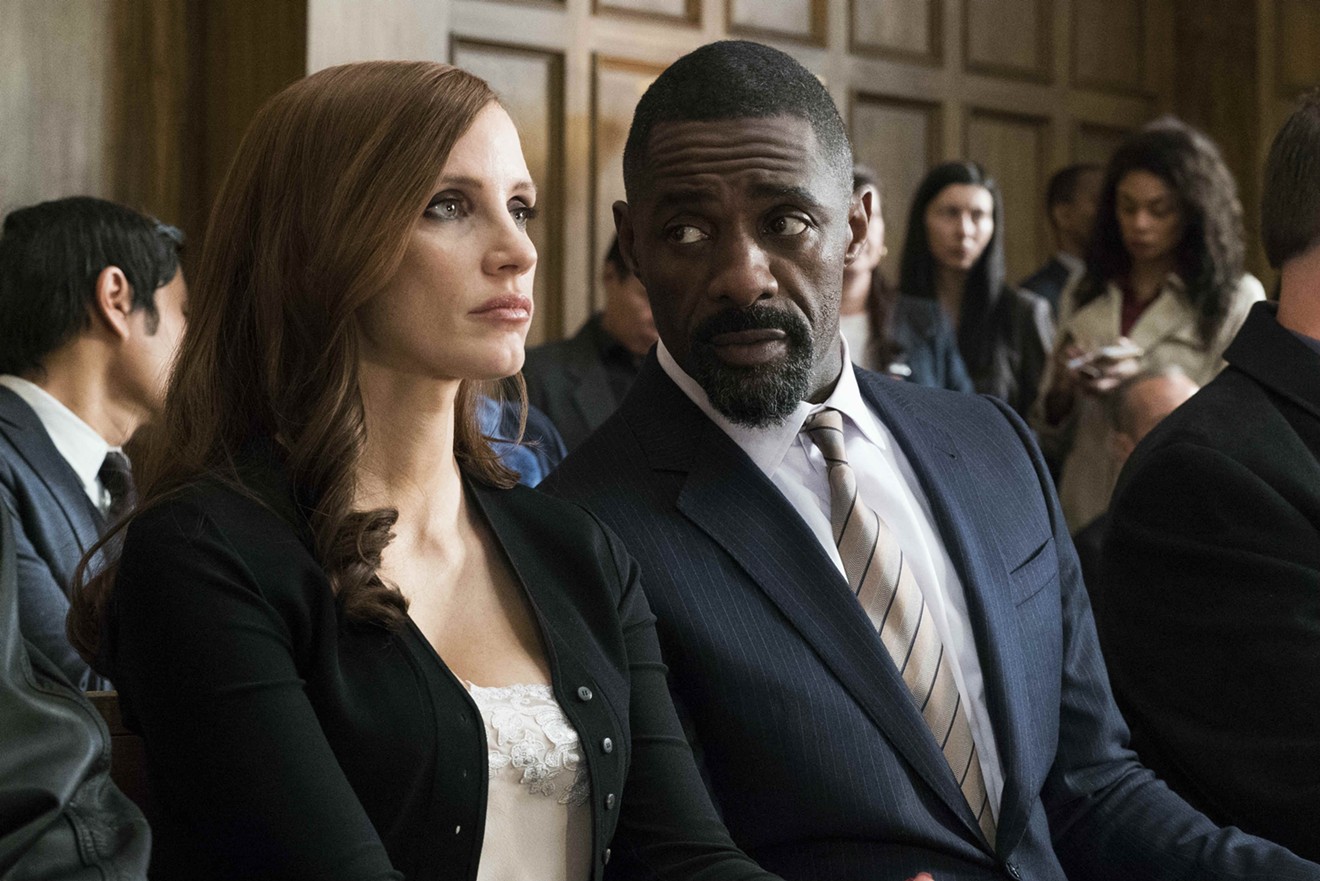Aaron Sorkin can be accused, rightfully, of many things in his work — dialogue for the sake of dialogue, preposterous political diatribes, ceaseless nods to his hero Hunter S. Thompson — but appealing specifically to women is not one of them. Perhaps not until now, with his directorial feature debut, the “Poker Princess” biopic Molly’s Game, starring Jessica Chastain. The film tells the true story of the rise and fall of the most powerful poker game runner in Los Angeles and New York — who happens to be a woman.
Sorkin’s politics and thoughts regarding women had been made public through the Sony hacks of 2014. An email he wrote to columnist Maureen Dowd, in part, read: “… the guy who wins the Oscar for Best Actor has a much higher bar to clear than the woman who wins Best Actress. Cate [Blanchett] gave a terrific performance in Blue Jasmine but nothing close to the degree of difficulty for any of the five Best Actor nominees … Helen Mirren and Meryl Streep can play with the boys but there just aren't that many tour-de-force roles out there for women.”
I can buy that he avoided saying there are no good female actors outside of Mirren and Streep, but rather that there are very few good parts for them that demand the grit and bravado of so many male roles. In that respect, I partly agree with Sorkin. The other half of me wants to yell at him for thinking it’s easy for all these women to portray dynamic listening onscreen, as they so often have to do. Is it not also important to display acute emotional intelligence alongside the action and the self-important monologues?
But with Molly’s Game, it’s almost as though Sorkin heard me yelling that at him before the words even came to him, because his protagonist Molly Bloom is both powerfully verbose and cautiously thoughtful. Chastain seems at times to be both the lead and her own supporting actor in this story, as she oscillates between traditionally feminine and masculine modes of behavior, sometimes inhabiting both at once. Yes, there are some Sorkinese dialogical flourishes that’ll have you checking your watch, and — wow — lots of unnecessary cleavage shots, but these demerits are made up for by Chastain’s performance (and the absorbing charm of Idris Elba as lawyer Charlie Jaffey).
Sorkin has adapted the real Molly Bloom’s autobiography, and her drift of mind is fascinating enough that the frequent voiceover narration is engaging, especially performed by Chastain. Hell, if I ever write a book, please God let her record the audio version. In the opening, we meet young Molly, who sits at the top of an Olympic ski hill, awaiting her turn, while she methodically recounts every thought that passes through a competitive athlete’s head — the angle of the hills, the visibility conditions, her GPA and LSAT scores (both very high). At the hill’s bottom, her father Larry (Kevin Costner) awaits her perfect run. A freak accident leads to what could be, but isn’t, a fatal tumble on the slope, yet Molly brushes herself off and gets up — blood smudging every inch of her face. That’s just what her father has taught her to do and what she’ll continue to do her whole life. Even when the FBI knocks her down.
Coincidental events lead Molly from the slopes to Hollywood, where she works with a misogynistic industry type, Dean Keith (Jeremy Strong), whose tantrums will seem vaguely recognizable to every Angeleno who has worked in the business. He’s crude, vindictive, racist, the kind of guy Megan Twohey and Jodi Kantor would be taking down right now. He throws a bag of bagels at Molly’s head, which she instinctively dodges. In that moment, it’s clear how Molly has continually adapted to the whims of hotheaded or forceful men. You can’t change the man who will throw bagels at your head, but you can duck and react and outsmart him.
Dean quickly realizes he has a woman willing to deal with his outbursts and orders her to start running his poker games at the Cobra Club. (Come on, we know it’s actually the Viper Room.) There, she starts making big money, using her book-smart brain to master poker from the sidelines. As she picks up the game like a pro, Sorkin gives us the kind of hot-shot-brilliant-mind montage we rarely see with a female character. She is powerful. But it won’t last.
What Molly’s Game portrays best is the absolute vulnerability of women who attempt to enter the dens of men. Yes, Molly holds millions of dollars at her fingertips and can ruin or make a man in a night, but the metaphorical wall that she puts up to protect herself is just a thin sheet of glass. Every time these men realize they can break through and destroy her, well … they do. And yet, Molly gets back up again. Sorkin doesn’t linger on the breaking moments, though. His focus is on Molly’s methodical plotting and planning and casual resilience. Unfortunately, he doesn’t stick the landing. There’s a lot of bullshit Freud talk in the final scenes that nobody needed to hear. But if Sorkin made this film to give a leading lady a chance to “play with the boys,” as he says, he succeeded.
[
{
"name": "Air - MediumRectangle - Inline Content - Mobile Display Size",
"component": "18855504",
"insertPoint": "2",
"requiredCountToDisplay": "2"
},{
"name": "Editor Picks",
"component": "17105533",
"insertPoint": "4",
"requiredCountToDisplay": "1"
},{
"name": "Inline Links",
"component": "18349797",
"insertPoint": "8th",
"startingPoint": 8,
"requiredCountToDisplay": "7",
"maxInsertions": 25
},{
"name": "Air - MediumRectangle - Combo - Inline Content",
"component": "17105532",
"insertPoint": "8th",
"startingPoint": 8,
"requiredCountToDisplay": "7",
"maxInsertions": 25
},{
"name": "Inline Links",
"component": "18349797",
"insertPoint": "8th",
"startingPoint": 12,
"requiredCountToDisplay": "11",
"maxInsertions": 25
},{
"name": "Air - Leaderboard Tower - Combo - Inline Content",
"component": "17105535",
"insertPoint": "8th",
"startingPoint": 12,
"requiredCountToDisplay": "11",
"maxInsertions": 25
}
]











